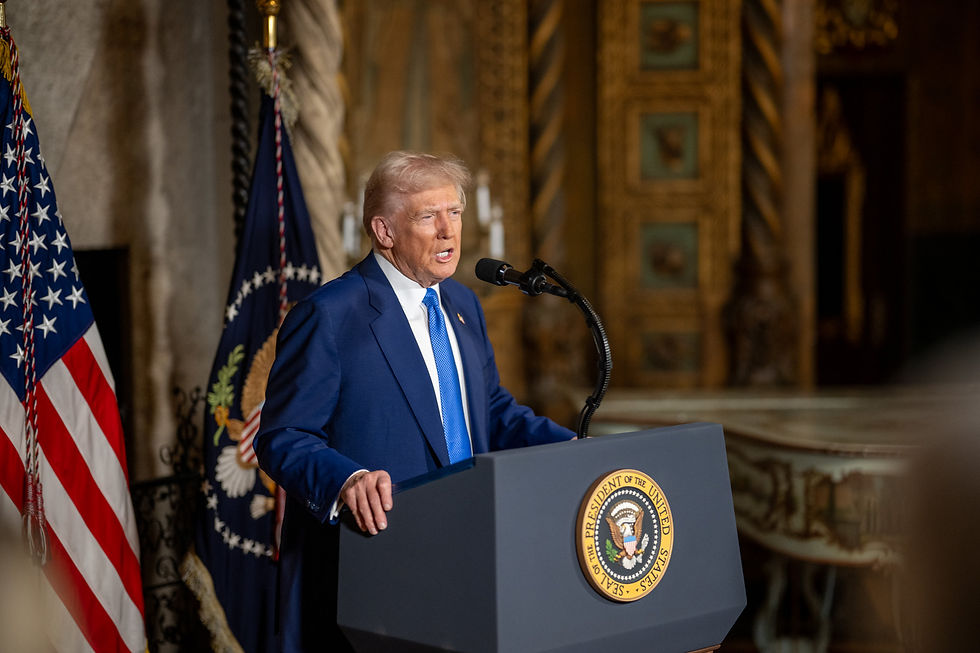Trump Blames Ukraine as US Stance on Russia Shifts
- Europinion

- Feb 19
- 2 min read

In a series of recent statements and diplomatic engagements, President Donald Trump has significantly altered the United States' stance on the ongoing conflict between Ukraine and Russia. These developments have raised concerns among European allies and Ukrainian officials about potential shifts in international support and the implications for Ukraine's sovereignty.
On February 19, 2025, President Trump suggested that Ukraine bears responsibility for the war with Russia. In a press conference at Mar-a-Lago, he stated, "You should have never started it," implying that Kyiv's actions led to the conflict. This assertion aligns with Russian narratives and has been met with widespread criticism, as it overlooks Russia's 2022 invasion of Ukraine. Trump further criticised Ukrainian President Volodymyr Zelensky, inaccurately claiming his approval rating is "not great" and suggesting that Ukraine should hold elections to potentially replace its leadership. These remarks have been perceived as undermining Ukraine's current government and echoing Kremlin talking points.
This week, high-level discussions between US and Russian officials took place in Riyadh, Saudi Arabia, aiming to negotiate an end to the conflict. Notably, Ukraine and European allies were excluded from these talks. President Trump dismissed concerns about this exclusion, stating that Ukraine "shouldn't have allowed this war to happen" and expressing disappointment over Kyiv's reaction to not being invited. This approach has alarmed Ukrainian and European leaders, who emphasise that any resolution without Ukraine's involvement lacks legitimacy and could compromise the nation's sovereignty.
Reports indicate that the Trump administration is considering significant concessions to Russia, including recognising current frontlines and potentially lifting certain sanctions. Discussions have also touched upon US access to Ukraine's mineral resources as compensation for military aid, suggesting a transactional approach to international relations. These proposals have been criticized for prioritizing economic gains over democratic principles and for potentially rewarding aggressive actions.
Ukrainian President Zelensky has strongly condemned any negotiations conducted without Ukraine's participation, stating that no agreement will be recognised without Ukrainian involvement. European leaders have echoed this sentiment, warning against a "Munich 2.0" scenario where appeasement could lead to further aggression. The exclusion of Ukraine and the nature of the proposed concessions have strained transatlantic relations and raised questions about the future of collective security in Europe.
President Trump's recent comments and diplomatic initiatives represent a significant shift in US policy towards the Ukraine-Russia conflict. By suggesting Ukrainian culpability, excluding key stakeholders from peace negotiations, and proposing economic concessions, the administration's approach has sparked controversy and concern among international allies. The long-term implications of these actions remain uncertain, but they undeniably mark a departure from previous US commitments to Ukrainian sovereignty and European security.
Image: The White House/Flickr
Public domain.
.png)



Comments